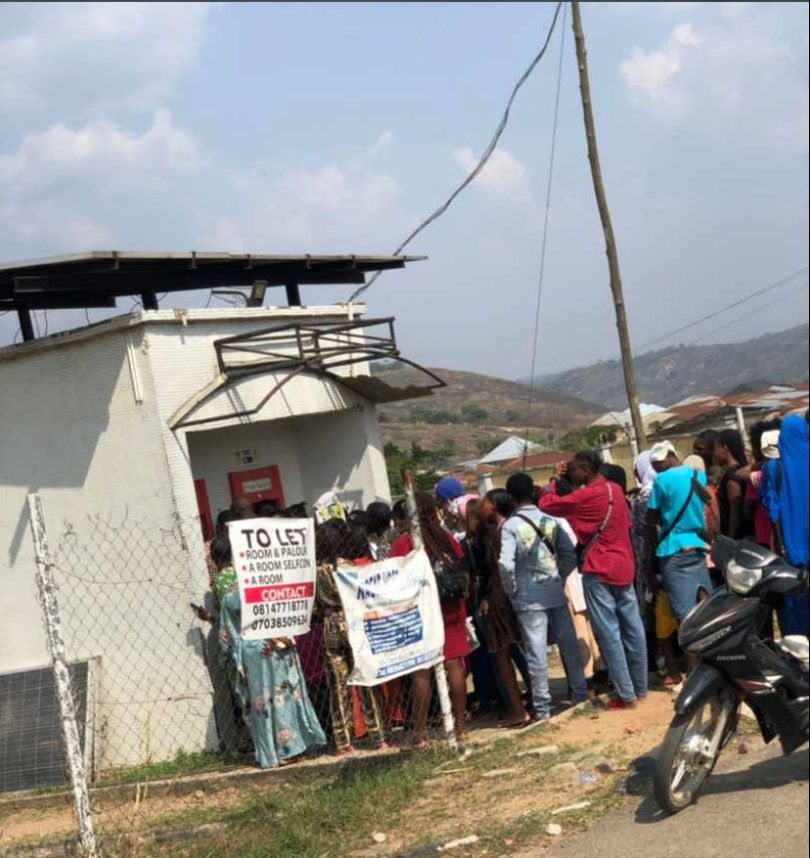By Folaranmi Ajayi
Students in Nigeria’s higher institutions of learning have come under severe pressure and discomfort resulting from the Central Bank of Nigeria’s (CBN) January 31st, 2023 deadline to phase out and replace old naira notes of some denominations.
In October, 2022 the central bank of Nigeria announced that the N200, N500, and N1,000 notes would be replaced with new, more secure designs.
While the CBN has extended the initial deadline to February 10th, 2023 the new naira notes are unavailable or yet to be circulated enough in Africa’s most populous country causing a bruising cash crunch that continues to rattle the residents.
Speaking with Edugist, students of various higher institutions of learning in the Southwestern part of the country have lamented how banks across these states do not dispense new notes and give old notes of N10, N5 and N20 to those who are willing to collect them.
Reacting to cash scarcity these students shared how point of sales (POS) merchants charge 10 per cent on every cash withdrawn leaving them with the decision to take the money or leave it..
While the CBN urged citizens to adopt alternative payment methods including cards and electronic transactions, many banks lacked the infrastructure to expand. Because no one took any action to prepare for the traffic increases, electronic transactions are failing.
In Lagos, Adeola, Shola and Adams pray that these issues end soon as it is making life miserable. .
“I have been very unhappy since last week because I don’t seem to have food at the hostel to eat, the transfer is hanging and to get the cash I have to pay more, just imagine I am paying N500 to collect N5,000, it is very unbearable”.
“One thing I don’t like about the whole thing is why there is no cash in circulation and there is a new naira note that suddenly becomes something as scarce as a masquerade’s saliva. People hoard cash because they don’t know what may happen next”.
“I went to the Wema ATM stand, I have spent over five hours and still I can’t get any at all. Students are fainting here and the stress is unimaginable.”
Alexander, a 300-level student of industrial chemistry at the Federal University of Oye, Ekiti lamented that the new policy brings more suffering to students because of the timing. .
“Poor timing of the new naira note policy has multiplied our hardship. If you want to make a withdrawal these days as a student you pay more and students like me are suffering. I had to walk a long distance to get cash yesterday and most of the automated teller machines (ATM) on campus are not dispensing cash.”
“I have missed three lectures because I don’t have money to get a shuttle to school and I cannot afford to trek to everywhere”.
” I have been missing lectures which is unlike me because of this cash scarcity and the daily increase in charges.” .
In Ogun, students are regularly stranded at motor parks, and markets and POS merchants prefer to accept cash but are not willing to offer students cash.l.
“I have never experienced this form of hardship in my 18 years on earth, I missed the bus to Ilaro because I needed to get #2000 and everyone is saying they can’t give that amount.”
“For three days, I have been unable to withdraw N10,000. . I have never been this broke all my life, I have money but I can’t even get it or spend it because I have it at a bank”.
In Oyo, Lillian, a postgraduate student, has described how she has roamed the market for hours because she has no cash and no seller wants to accept transfers.
“I have been roaming inside this market since morning, I don’t have cash and no one wants to collect a transfer”.
Similarly, Mary, an undergraduate student in Ibadan said people who have cash n don’t want to spend it as they are not sure they will get cash in return.
“In my area, economic activities are down as nothing is happening people don’t want to spend their money at all and they are afraid of what’s happening”.
In Ekiti, Imoleayo a 400-level Mathematics science student has stated that everyone is paying tithe these days to get money as POS merchants charge 10 per cent of any amount withdrawn.
“There is no access to cash and it is unthinkable that you have money but can’t the money from the bank or the POS users, the funny thing is that you are charged 10 per cent as if you are paying tithe on every cash withdrawal.”
“Cash is not easy to get, you pay tithe on your withdrawals and that’s not sustainable for us students. It is not good at all because we don’t have much. At ATMs that dispense cash there are queues, the POS merchants that are available are not affordable”.
Meanwhile, speaking with POS operators within the Lagos metropolis they claim that they buy money and they pay more to get the cash from the banks and the market women who give them some cash charge more.
“What some of you don’t know is that we also are victims of this greed, we buy the money from banks and market women and you don’t expect us to run at a loss”.
In Osun, students lamented the inflation of charges by POS merchants as a result of the difficulty in getting the new currency introduced by the Nigerian government. While some of the POS attendants charge N200 for N1000 withdrawals, some that are lenient are charge #150.
Olayemi Kazeem a student of Osun State polytechnic, Iree, shared his experience at a POS stand where they were charged #2000 to withdraw #10,000 and were still given the old naira notes . “We can’t even buy food because they don’t accept transfers due to the fake transfers our colleagues make”, he said.
A shadow economy for the new notes has arisen in a nation where a sizable black market is responsible for supplying fuel, US dollars, and other goods. Banking representatives, who frequently provide cash in isolated locations, have increased their commissions. Previously, an agent would charge N100 for a withdrawal of N5,000; now, they demand N500.








